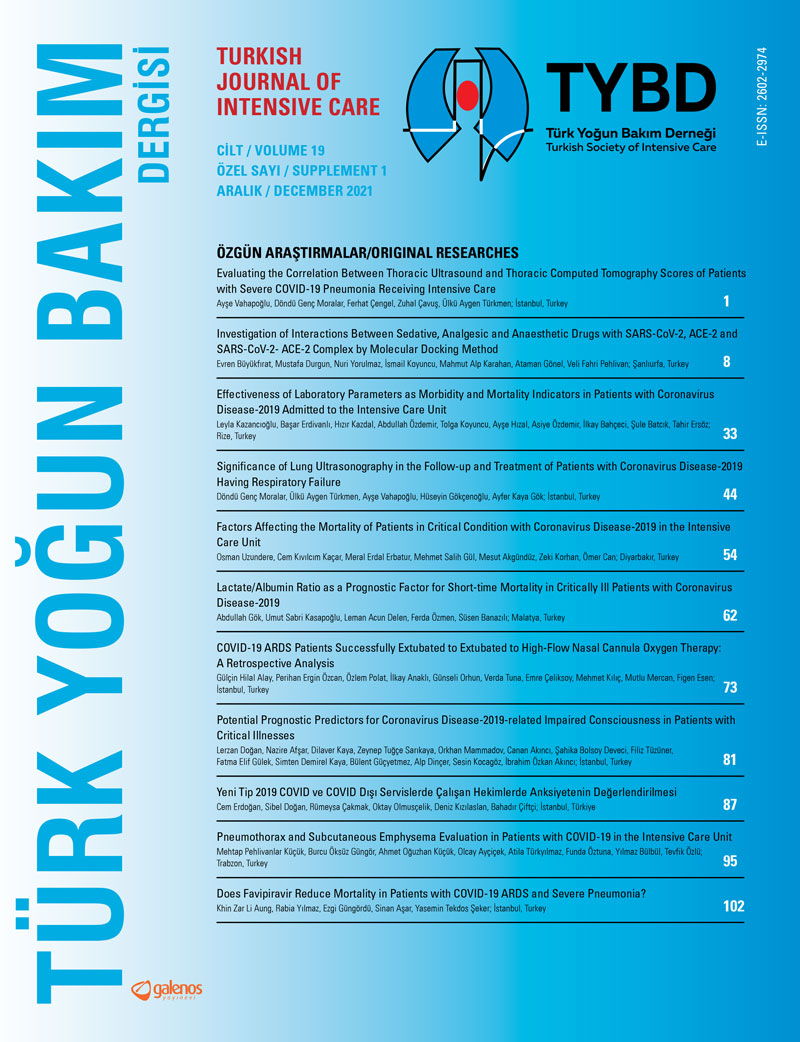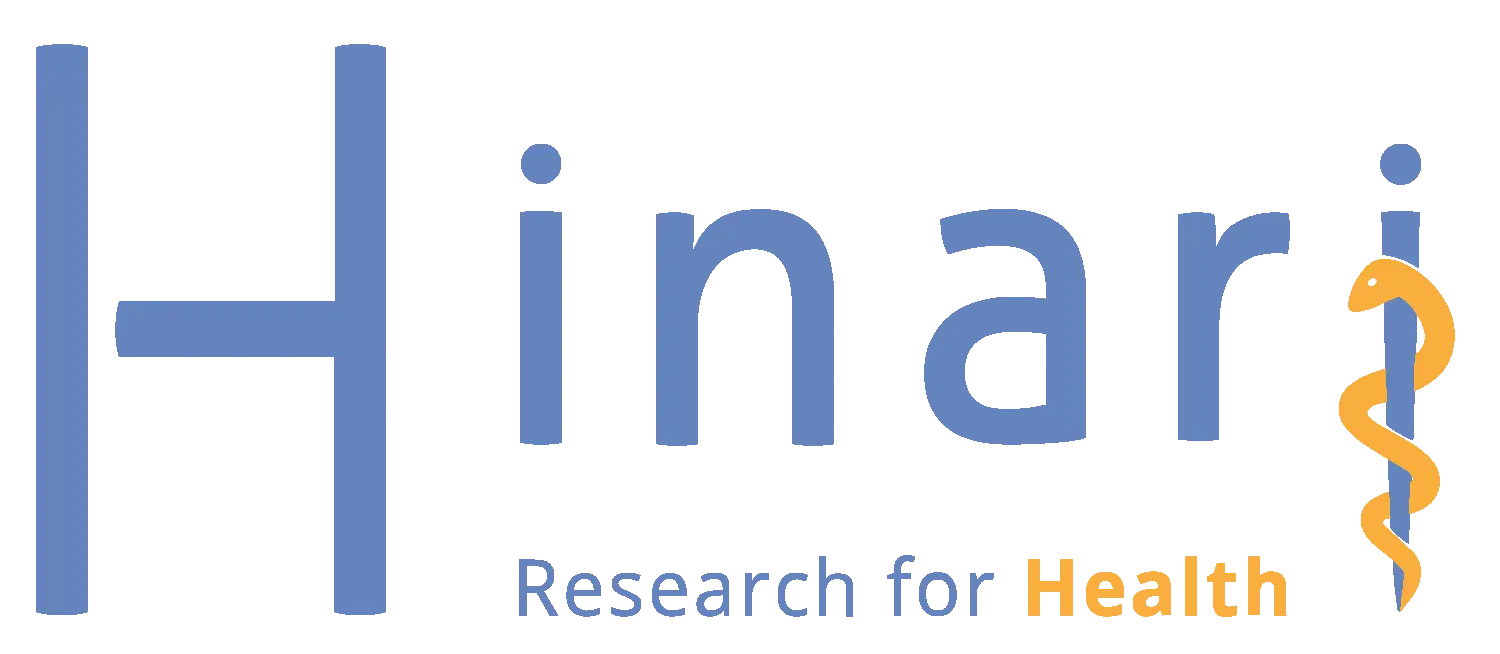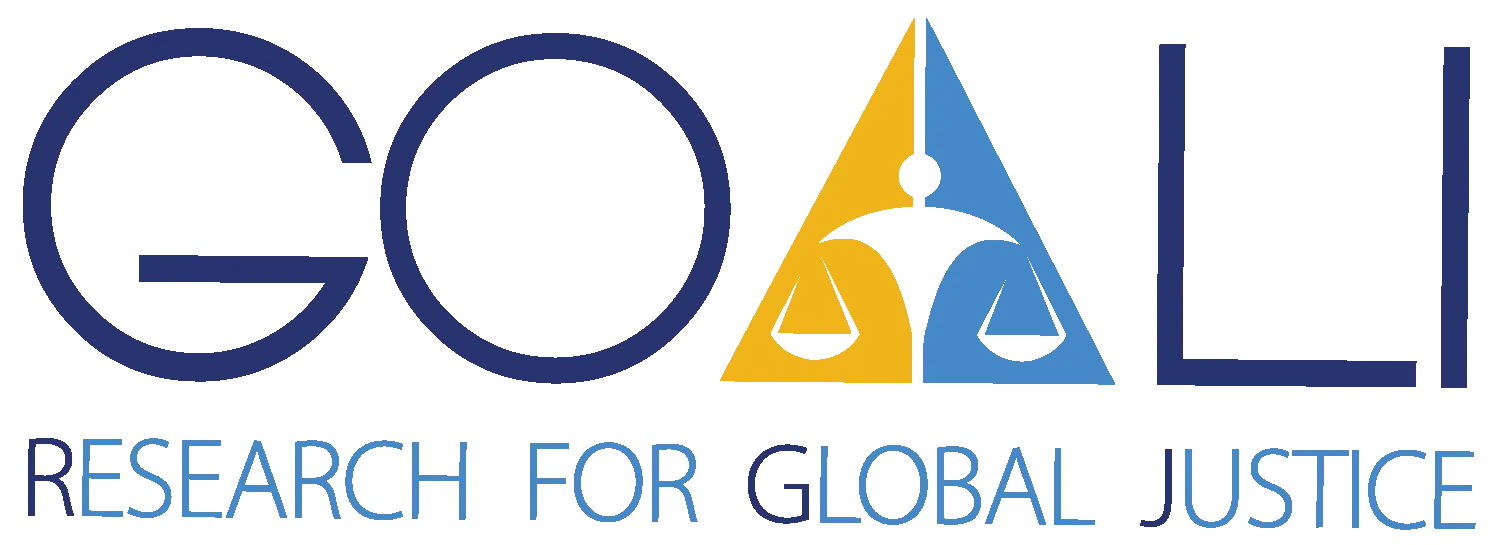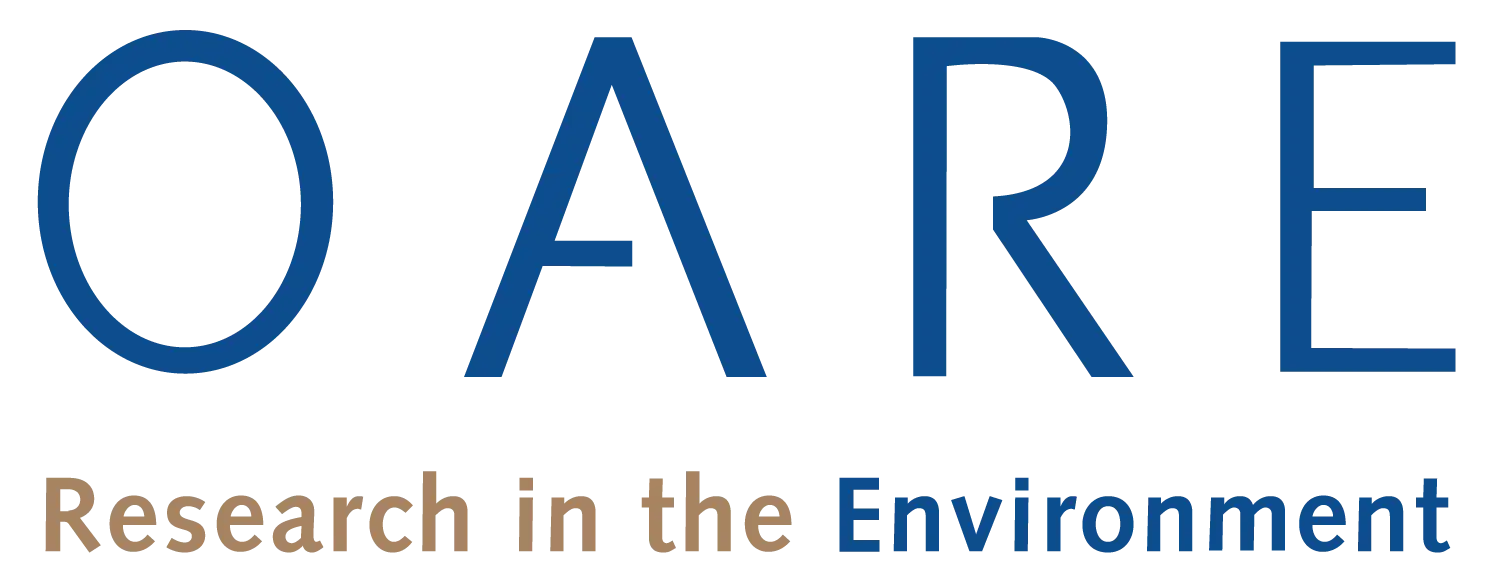Öz
Amaç:
Bu çalışma İstanbul’da bir vakıf üniversitesi hastaneler kompleksinde yeni tip 2019 koronavirüs hastalığı (COVID) ve COVID dışı servislerde çalışan hekimlerde anksiyetenin değerlendirilmesi amacıyla yapılmış tanımlayıcı bir çalışmadır.
Gereç ve Yöntem:
Çalışma kapsamına, pandemi servislerinde çalışan 50, pandemi dışı servislerde çalışan 52 hekim alınmıştır. Veri toplama aracı olarak hekimlerin sosyo-demografik ve mesleki bazı özelliklerini içeren anket formu ve durumluk-süreklilik kaygı ölçeği kullanılmıştır. Veriler online anket uygulaması yoluyla toplanmıştır. Verilerin değerlendirilmesinde verilerin normal dağılım gösterip göstermediğine Shapiro-Wilk normallik testi ile bakılmıştır. Verilerin normal dağılım göstermediği için iki grup karşılaştırmalarında Mann-Whitney U testi, ikiden fazla grup karşılaştırmalarında ise Kruskal-Wallis testi kullanılmıştır. Korelasyon analizinde ise Pearson korelasyon analizi yapılmıştır
Bulgular:
Çalışmamızda pandemi servislerinde çalışan hekimlerin durumluk kaygı puan ortalamalarının, pandemi dışı servislerde çalışan hekimlerin kaygı puan ortalamalarından daha yüksek olduğu ve aradaki farkın istatistiksel olarak anlamlı olduğu saptanmıştır (p<0,05). Cinsiyete göre pandemi servisinde çalışan kadın hekimlerin durumluk kaygı puan ortalamalarının erkek hekimlerden daha yüksek ve farkın istatistiksel olarak önemli olduğu belirlenmiştir (p<0,05). Yaş gruplarına göre pandemi servislerinde çalışan 43 yaş ve üzerindeki hekimlerin süreklilik kaygı puan ortalamalarının diğer yaş gruplarındaki hekimlerden daha düşük ve farkın istatistiksel olarak önemli olduğu saptanmıştır (p<0,05). Hem pandemi servislerinde çalışan hekimlerin hem de pandemi servisleri dışında çalışan hekimlerin durumluk ve süreklilik kaygı ölçeği puan ortalamaları arasında pozitif yönlü kuvvetli ilişki saptanmıştır (p<0,05). Yani durumluk kaygı arttıkça süreklilik kaygı, süreklilik kaygı arttıkça durumluk kaygı da artmaktadır.
Sonuç:
Çalışmamızda pandemi servislerinde çalışan hekimlerin durumluk kaygısının diğer servislerde çalışan hekimlerden daha fazla olduğu ve süreklilik kaygısı arasında bir fark bulunamaması pandemi servisinde çalışmanın anksiyeteye neden olduğunu göstermektedir.
Anahtar Kelimeler: Hekim, COVID-19, pandemi, anksiyete
Referanslar
- Maslach C, Leiter LP. (1997). The truth about burnout: How organizations cause personal stress and what to do about it. San Francisco: Jossey Bass.
- Poncet MC, Toullic P, Papazian L, Kentish-Barnes N, Timsit JF, Pochard F, et al. Burnout syndrome in critical care nursing staff. Am J Respir Crit Care Med 2007;175:698-704.
- Ofili AN, Asuzu MC, Isah EC, Ogbeide O. Job satisfaction and psychological health of doctors at the University of Benin Teaching Hospital. Occup Med (Lond) 2004;54:400-3.
- Vanagas G, Bihari-Axelsson S. The factors associated to psychosocial stress among general practitioners in Lithuania. Cross-sectional study. BMC Health Serv Res 2005;5:45.
- World Health Organization. Health workers exposure and management in the context of COVİD-19-19 virus: interim guidance. Geneva: World Health Organization; 2020. Available from URL: https://apps.who.int/iris/handle/10665/331340. Accessed 4 Mar 2020.
- World Health Organization. Coronavirus disease (COVİD-19-19) outbreak: rights roles and responsibilities of heath workers, including key considerations for occupational safety and health: interim guidance. Geneva: World Health Organization; 2020. Available from URL: https://apps.who.int/iris/handle/10665/331510. Accessed 19 Mar 2020.
- Spielberger CD, Gorsuch RL, Lusahene RE. Manual for State and Trait Anxiety Inventory. California: Consulting Psychologists Press; 1970.
- Öner N, LeCompte A. Durumluk-Sürekli Kaygı Envanteri El Kitabı, Boğaziçi Üniversitesi Yayınları, No:333; İstanbul: 1982.
- Xiang YT, Jin Y, Wang Y, Zhang Q, Zhang L, Cheung T. Tribute to health workers in China: a group of respectable population during the outbreak of the COVİD-19-19. Int J Biol Sci 2020;16:1739-40.
- Shanafelt T, Ripp J, Trockel M. Understanding and Addressing Sources of Anxiety Among Health Care Professionals During the COVID-19 Pandemic. JAMA 2020;323:2133-4.
- Neto MLR, Almeida HG, Esmeraldo JD, Nobre CB, Pinheiro WR, de Oliveira CRT, et al. When health professionals look death in the eye: the mental health of professionals who deal daily with the 2019 coronavirus outbreak. Psychiatry Res 2020;288:112972.
- El-Hage W, Hingray C, Lemogne C, Yrondi A, Brunault P, Bienvenu T, et al. Les professionnels de santé face à la pandémie de la maladie à coronavirus (COVID-19) : quels risques pour leur santé mentale ? [Health professionals facing the coronavirus disease 2019 (COVID-19) pandemic: What are the mental health risks?]. Encephale 2020;46(3S):S73-S80. French.
- Bohlken J, Schömig F, Lemke MR, Pumberger M, Riedel-Heller SG. COVID-19-Pandemie: Belastungen des medizinischen Personals [COVID-19 Pandemic: Stress Experience of Healthcare Workers - A Short Current Review]. Psychiatr Prax 2020;47:190-7. German.
- Lai J, Ma S, Wang Y, Cai Z, Hu J, Wei N, et al. Factors Associated With Mental Health Outcomes Among Health Care Workers Exposed to Coronavirus Disease 2019. JAMA Netw Open 2020;3:e203976.
- Çelmeçe N, Menekay M. The Effect of Stress, Anxiety and Burnout Levels of Healthcare Professionals Caring for COVID-19 Patients on Their Quality of Life. Front Psychol 2020;11:597624.
- Di Tella M, Romeo A, Benfante A, Castelli L. Mental health of healthcare workers during the COVID-19 pandemic in Italy. J Eval Clin Pract 2020;26:1583-7.
- Hacimusalar Y, Kahve AC, Yasar AB, Aydin MS. Anxiety and hopelessness levels in COVID-19 pandemic: A comparative study of healthcare professionals and other community sample in Turkey. J Psychiatr Res 2020;129:181-8.
- Trumello C, Bramanti SM, Ballarotto G, Candelori C, Cerniglia L, Cimino S, et al. Psychological Adjustment of Healthcare Workers in Italy during the COVID-19 Pandemic: Differences in Stress, Anxiety, Depression, Burnout, Secondary Trauma, and Compassion Satisfaction between Frontline and Non-Frontline Professionals. Int J Environ Res Public Health 2020;17:8358.
Telif hakkı ve lisans
Telif hakkı © 2021 Yazar(lar). Açık erişimli bu makale, orijinal çalışmaya uygun şekilde atıfta bulunulması koşuluyla, herhangi bir ortamda veya formatta sınırsız kullanım, dağıtım ve çoğaltmaya izin veren Creative Commons Attribution License (CC BY) altında dağıtılmıştır.






















